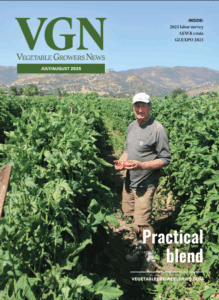Mar 10, 2005Florida Tomato Pickers, Taco Bell Reach Agreement
In what they called a precedent-setting move, fast-food industry leader Taco Bell Corp., a division of Yum! Brands, agreed to work with the Coalition of Immokalee Workers (CIW) – a farm worker organization – to address wages and working conditions of farm workers in the Florida tomato industry. The announcement was made March 8 in a joint press release.
According to the agreement, Taco Bell will fund a penny-a-pound “pass-through” with its suppliers of Florida tomatoes, and will undertake joint efforts with the CIW on several fronts to improve working conditions in Florida’s tomato fields.
The CIW agreed to end its three-year boycott of Taco Bell, saying that the agreement “sets a new standard of social responsibility for the fast-food industry.”
The CIW, a group of mostly Hispanic laborers from the tomato-growing region around Immokalee, Fla., had sponsored a three-year campaign called the “Taco Bell Truth Tour.” The effort asked people to stay away from Taco Bell restaurants until the company pressured tomato growers to provide better wages and living conditions for farm workers. The workers’ cause gained support from a broad coalition of groups and individuals.
Financially, the deal will cost Taco Bell about $100,000. It buys about 10 million pounds of Florida tomatoes each year. For the 1,000 pickers who harvest tomatoes for Taco Bell suppliers, that figures out to $100 each per year.
The reason for the seemingly low impact is that Taco Bell buys only 1 percent of Florida’s production.
But the 1-cent-a-pound increase will boost worker wages 32 cents a bucket on tomatoes picked for Taco Bell, 160 to 180 percent of current levels of 40 to 50 cents a bucket.
“As an industry leader, we are pleased to lend our support to and work with the CIW to improve working and pay conditions for farm workers in the Florida tomato fields,” said Emil Brolick, Taco Bell president. “We recognize that Florida tomato workers do not enjoy the same rights and conditions as employees in other industries and there is a need for reform.
“We have indicated that any solution must be industry-wide, as our company simply does not have the clout to solve the issues raised by the CIW, but we are willing to play a leadership role within our industry to be part of the solution,” Brolick said.
“This is an important victory for farm workers, one that establishes a new standard of social responsibility for the fast-food industry and makes an immediate material change in the lives of workers,” said Lucas Benitez, a leader of CIW. “This sends a clear challenge to other industry leaders.”
















